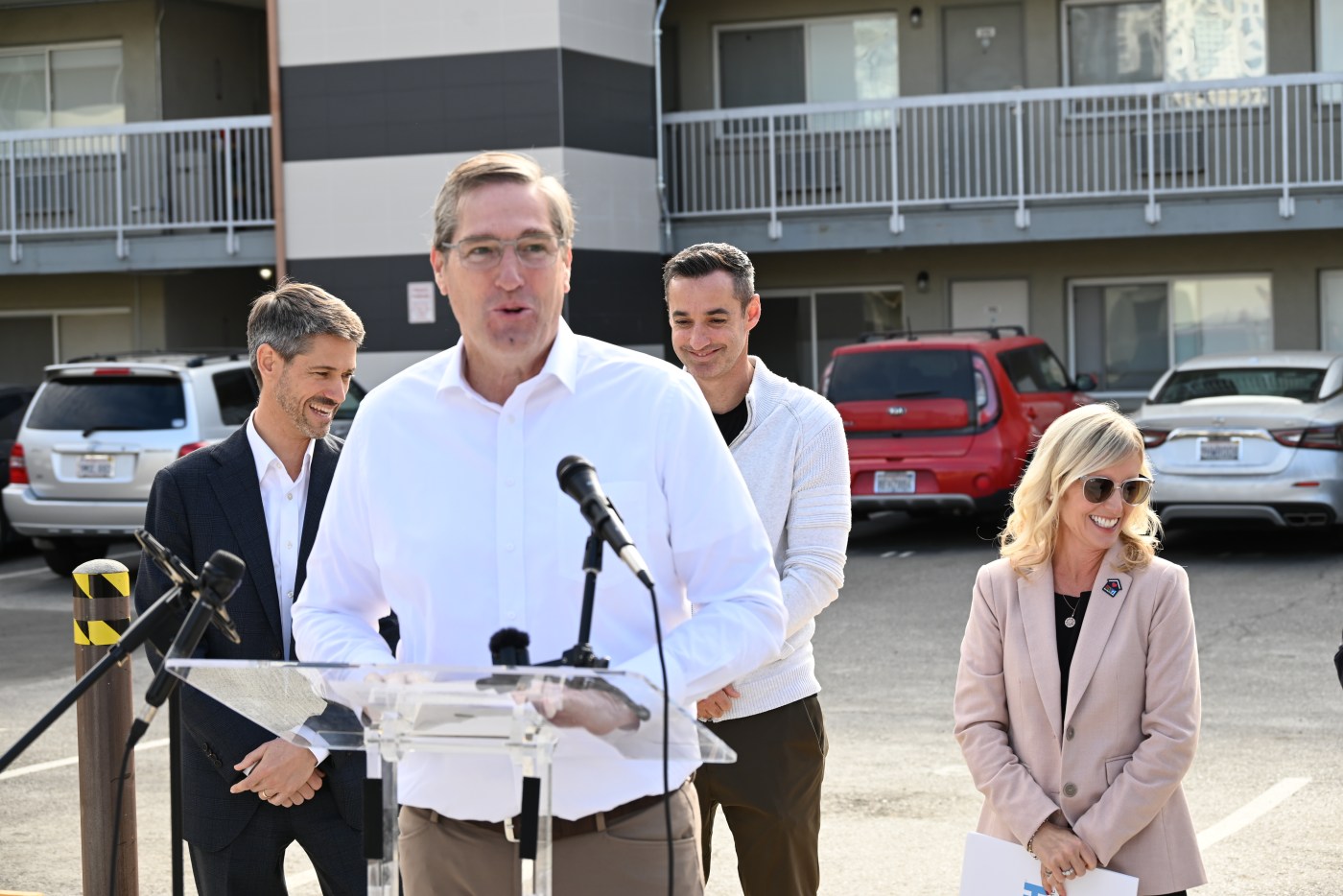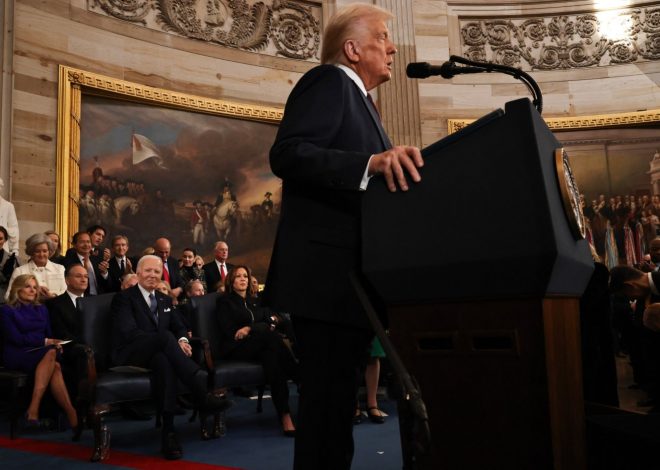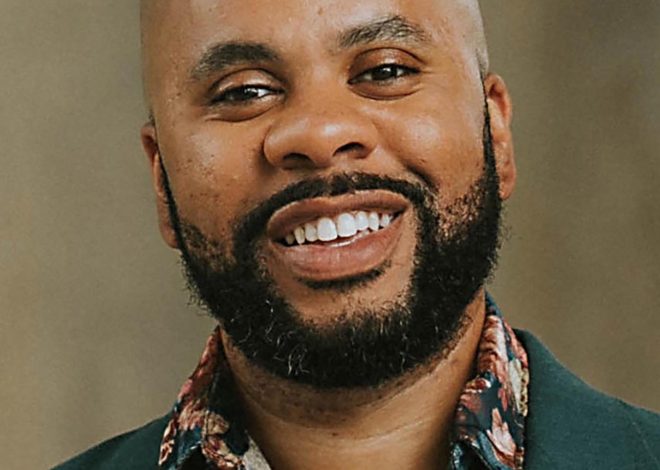
San Jose’s Pacific Motor Inn reopens as supportive housing
A public-private partnership that aims to transform the Pacific Motor Inn in San Jose’s SoFA District into a mixed-income community has completed its first phase of converting the motel into supportive housing.
The joint venture between People Assisting the Homeless (PATH) and Westbank Corp., a leading real estate developer, has temporarily reimagined the former motel into 72 supportive housing units before starting plans to redevelop the site into 500 affordable housing and market-rate apartments over the next several years. City officials said it is the first time supportive, affordable and market-rate housing will be built on the same lot in California.
“While we’re celebrating the opening of this site, what we’re really celebrating is that this provides 72 units of much-needed shelter and supportive services for people experiencing homelessness,” PATH CEO Jennifer Hark Deitz said. “I’m really excited that while we’ve only been open for one month, we already are almost full. By next week, we will have all 72 units occupied and that means people have a safe and stable place to sleep to lock their doors, to have the supportive services they need, including nutritious meals and all of the things we all sometimes take for granted.”
The city of San Jose previously used the Pacific Motor Inn to help house homeless residents during the COVID-19 pandemic. Aiming to provide a more substantive solution, the city applied for and received $19 million in Project HomeKey funds through the California Department of Housing and Community Development that help develop or redevelop properties for interim housing uses.
San Jose has also contributed $25 million to help the joint venture project get off the ground.
Along with providing a safe place to sleep, Dietz said PATH provides a “whole person care approach” that includes resources for mental health care, substance use treatment and finding financial stability.
The addition of supportive housing units was seen as a welcome sign as San Jose continues to struggle with the homelessness crisis and cannot yet offer shelter to the thousands of residents living on the street.
PATH Program Manager Jenn Torres, center, gives San Jose Mayor Matt Mahan a tour of the renovated Pacific Motor Inn, which will now provide 72 units of supportive housing. (Devan Patel/Bay Area News Group)
San Jose is adding hundreds of tiny homes in the next 18 months to its inventory of 499 emergency interim beds, 190 hotel and motel room conversions, and 45 safe parking spaces.
The city’s emergency interim housing solutions have delivered promising results, reducing the unsheltered homeless population by 15% over the past few years and helping residents find permanent housing.
“We’re excited that Pacific Motor Inn will offer immediate shelter and also foster a sense of community among residents as they form meaningful connections during their time here,” Santa Clara County Housing Authority Executive Director Preston Prince said. “Those bonds will carry over into their new homes, creating a supportive network that enhances their stability and well-being.”
Before the conversion of the Pacific Motor Inn, San Jose had also successfully used Project HomeKey funds to convert The Arena Hotel into transitional housing.
Andrew Jacobson, Westbank’s vice president of U.S. development, said that the affordable housing mid-rise building planned for the site will have approximately 121 units, while the high-rise the developer envisions will hold 360 apartments.
Although he could not provide a definitive timeline, Jacobson estimated it would take two to three years to get to the construction phase, which would take an additional couple of years to complete.
Westbank is also heavily involved in some of the most ambitious development projects in downtown San Jose, including right around the corner of the Pacific Motor Inn.
In one of the other projects in the SoFA District, the real estate giant has proposed building three residential high-rises near the corner of South First Street and East San Carlos, which, if completed, could bring more than 1,147 units online. The most recent plans submitted to the city marked a shift away from a mixed-use development originally proposed as the office market continues to struggle.
Related Articles
Prop 36 aims to force drug offenders into treatment. Would it help solve homelessness?
San Mateo County District 4 race: East Palo Alto’s Lopez and Gauthier face off
Children live in one of San Jose’s most dangerous encampments
After seeking homeless spending cuts, Newsom announces $170 million to bring Bay Area residents off the street
Candidates looking to fill open Berkeley council seats weigh in on encampment policy
San Jose Mayor Matt Mahan said it was important that the city continue to build mixed-income communities because evidence showed they created greater opportunities for everyone, including giving children greater access to a wider range of jobs and life experiences.
“I think we have a stronger, more resilient, healthier city if we maintain mixed-income neighborhoods,” Mahan said. “Crowding and marginalizing people of lower income or who otherwise are facing challenges into less resource-rich neighborhoods is a bad thing for all of us in the long run. We can do better than that. We will do better than that, and this project represents it.”


